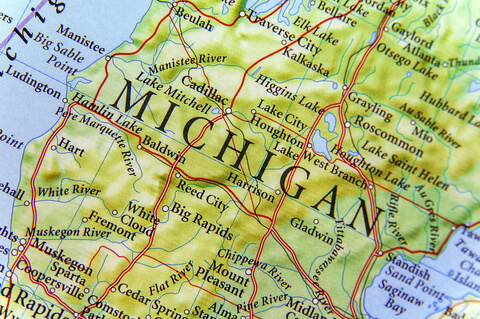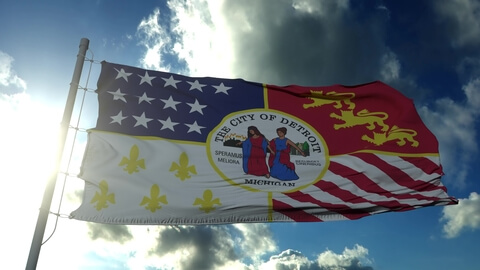
Michigan is a state rich in natural beauty, cultural depth, industrial innovation, and historical significance. Each aspect contributes to a vibrant identity that continues to evolve while honoring its past. Whether exploring its stunning landscapes, engaging with its artistic communities, or tasting its culinary delights, there is always something new to discover.
Often known for its stunning lakes and vibrant cities, this state holds many surprising facts that make it truly unique. From the world’s first concrete paved road to being the birthplace of snowboarding, this state has stories that go beyond the ordinary. Understanding these remarkable features not only highlights Michigan’s rich history but also showcases its significant contributions to the nation. One of the most interesting aspects of Michigan is the Saugatuck Chain Ferry, a charming way to cross the Kalamazoo River. This ferry has been in operation for over a century, offering a direct route for locals and tourists alike. It serves as a reminder of simpler times when travel relied on boats instead of cars. The ferry not only provides a scenic experience but also connects communities and supports local tourism. This blend of history and modern convenience illustrates how transportation can shape the identity of a place.
One of the most interesting aspects of Michigan is the Saugatuck Chain Ferry, a charming way to cross the Kalamazoo River. This ferry has been in operation for over a century, offering a direct route for locals and tourists alike. It serves as a reminder of simpler times when travel relied on boats instead of cars. The ferry not only provides a scenic experience but also connects communities and supports local tourism. This blend of history and modern convenience illustrates how transportation can shape the identity of a place.
Another fascinating fact is that it was home to the world’s first concrete paved road, known as Woodward Avenue. Built in 1909, this road marked a significant advancement in engineering and transportation. The innovation of concrete paved surfaces revolutionized how roads were constructed and maintained. Today, Woodward Avenue is not just a road; it symbolizes the beginning of modern infrastructure in America. This achievement reflects Michigan's role as a leader in innovation and development. Additionally, Muskegon proudly claims the title of the birthplace of snowboarding. In the 1960s, a local resident invented the first snowboard, which later gained popularity worldwide. This invention opened new doors for winter sports and transformed recreational activities. The influence of this innovation can still be seen today, as snowboarding continues to attract enthusiasts of all ages. Muskegon's contribution to this exhilarating sport highlights the state's capacity for creativity and influence in leisure activities.
Additionally, Muskegon proudly claims the title of the birthplace of snowboarding. In the 1960s, a local resident invented the first snowboard, which later gained popularity worldwide. This invention opened new doors for winter sports and transformed recreational activities. The influence of this innovation can still be seen today, as snowboarding continues to attract enthusiasts of all ages. Muskegon's contribution to this exhilarating sport highlights the state's capacity for creativity and influence in leisure activities. Furthermore, Michigan has a noteworthy distinction of being first in state boat registrations. With its extensive coastline and thousands of inland lakes, it is no surprise that boating is a favorite pastime for many residents. This love for water activities not only promotes tourism but also fosters a strong community spirit among boaters. The state’s commitment to preserving its natural resources ensures that future generations can enjoy these beautiful waterways.
Furthermore, Michigan has a noteworthy distinction of being first in state boat registrations. With its extensive coastline and thousands of inland lakes, it is no surprise that boating is a favorite pastime for many residents. This love for water activities not only promotes tourism but also fosters a strong community spirit among boaters. The state’s commitment to preserving its natural resources ensures that future generations can enjoy these beautiful waterways. Moreover, it is home to the first three tunnels in the world connecting two different countries: the Detroit-Windsor Tunnel, the Sault Ste. Marie International Bridge, and the Blue Water Bridge. These tunnels symbolize the strong ties between the United States and Canada, facilitating trade and travel. They serve as a testament to its strategic location and its role in international relations. This unique feature sets Michigan apart and enhances its significance on a global scale.
Moreover, it is home to the first three tunnels in the world connecting two different countries: the Detroit-Windsor Tunnel, the Sault Ste. Marie International Bridge, and the Blue Water Bridge. These tunnels symbolize the strong ties between the United States and Canada, facilitating trade and travel. They serve as a testament to its strategic location and its role in international relations. This unique feature sets Michigan apart and enhances its significance on a global scale. Did you know that Michigan is the second most agriculturally diverse state in the nation? With a wide range of crops and livestock, it plays a vital role in the American food supply. From cherries to corn, the state's rich soil and favorable climate allow for an abundance of farming opportunities. This diversity not only supports local economies but also contributes to the nation’s agricultural strength.
Did you know that Michigan is the second most agriculturally diverse state in the nation? With a wide range of crops and livestock, it plays a vital role in the American food supply. From cherries to corn, the state's rich soil and favorable climate allow for an abundance of farming opportunities. This diversity not only supports local economies but also contributes to the nation’s agricultural strength. The Michigan territory was established in 1805, with Detroit as the seat of government, laying the groundwork for its statehood. Over the years, four different countries' flags have flown over Michigan, each representing a piece of its complex history. This blend of cultures and influences has shaped Michigan into the diverse state it is today. Understanding its past provides valuable insights into the present and future of this remarkable region.
The Michigan territory was established in 1805, with Detroit as the seat of government, laying the groundwork for its statehood. Over the years, four different countries' flags have flown over Michigan, each representing a piece of its complex history. This blend of cultures and influences has shaped Michigan into the diverse state it is today. Understanding its past provides valuable insights into the present and future of this remarkable region.
Moreover, Michigan's thriving arts scene is worth mentioning. Cities like Detroit and Grand Rapids boast vibrant art communities, with numerous galleries, theaters, and music venues. The Detroit Institute of Arts, for instance, is home to an impressive collection of artworks, including pieces by renowned artists such as Diego Rivera and Vincent van Gogh. The state also hosts various festivals celebrating music, film, and culture, further enriching the cultural landscape.
In addition to its artistic contributions, the state has a significant industrial history. The automotive industry, centered in Detroit, shaped not only the state but the entire nation. Companies like Ford, General Motors, and Chrysler were pioneers in mass production and innovation. The impact of this industry can still be felt today, as it continues to evolve into a hub for technology and manufacturing, particularly in the fields of electric vehicles and sustainable energy.
The educational institutions of the area also play a crucial role in its identity. The state is home to several prestigious universities, including the University of Michigan, Wayne State, and Michigan State University. These institutions contribute to research, innovation, and a skilled workforce, ensuring that Michigan remains competitive in a rapidly changing world.
Furthermore, the state has a rich Native American heritage. Tribes such as the Ojibwe, Odawa, and Potawatomi have lived in the state for centuries, and their histories are woven into the fabric of the state. Cultural events, powwows, and educational programs help preserve and promote this heritage, allowing residents and visitors to gain a deeper understanding of the indigenous peoples' contributions and traditions.
This rich culinary scene deserves a mention. With access to fresh produce, fish, and dairy, the state offers a diverse array of dishes. From the famous Detroit-style pizza to the sweet taste of cherries, the local cuisine reflects the state's agricultural diversity. Farmers' markets and food festivals celebrate this bounty, encouraging a farm-to-table movement that connects consumers with local growers.
In conclusion, this is a state filled with fascinating facts and rich history. From the Saugatuck Chain Ferry to the innovative spirit that birthed snowboarding, each element contributes to its unique identity. The achievements in infrastructure, agriculture, and international connections further solidify Michigan's importance within the United States. Recognizing and celebrating these aspects not only honors the state’s past but also inspires future generations to appreciate and protect its legacy.



